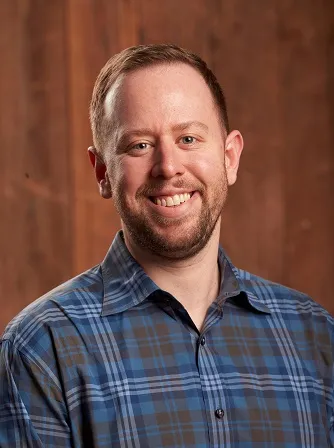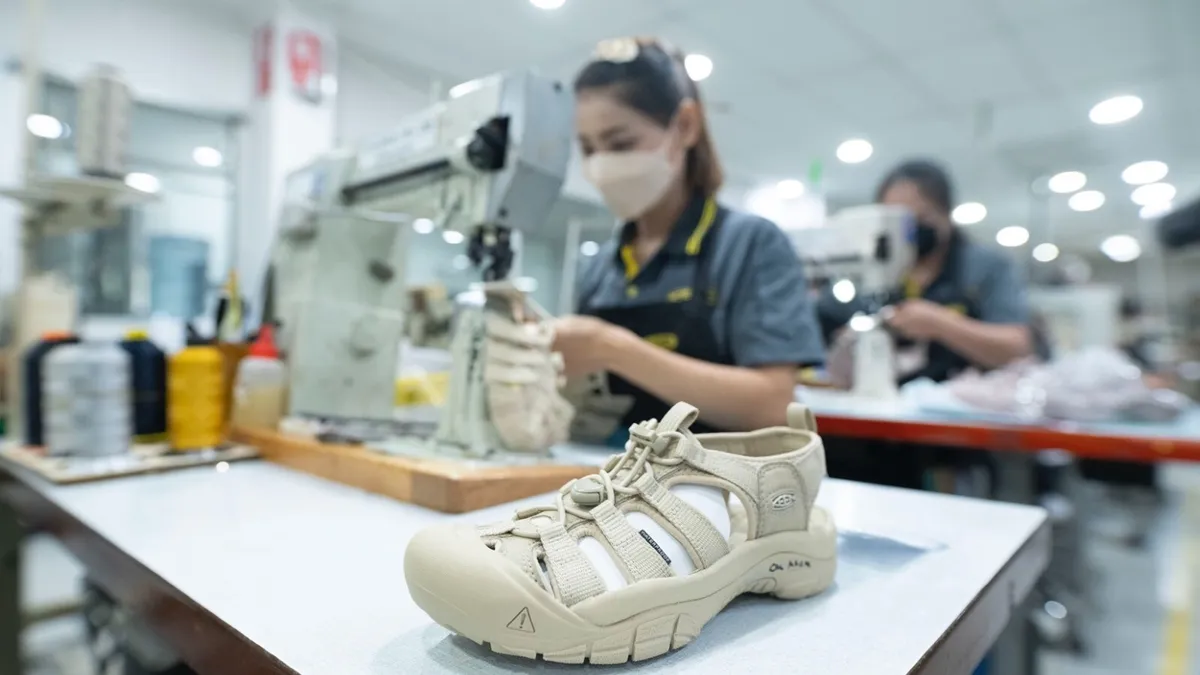For footwear brand Keen, ownership of the supply chain is both an ethic and a strategy. It creates a path for realizing some of the brand’s deepest values.
Keen owns around 40% of its production, with company factories in Portland, Oregon — where the company was founded and is still based — as well as Thailand and the Dominican Republic.
It’s an old-fashioned way to achieve supply chain visibility, as so many are spending and struggling to achieve today. For Keen, it’s key to the company’s focus on product quality and durability along with its environmental and sustainability goals. It has also helped the two-decade-old company weather a turbulent time.
“That’s a big piece of our effort to control the controllables,” said John Evons, Keen president, in an interview. “We have been shoe manufacturers for many years.”
That begins with one of the brand’s founders, Rory Fuerst, who got his start in the business resoling tennis shoes before going into footwear manufacturing.
Ownership of production has essentially reduced complexity and risk in a period marked by supply chain turbulence. It gives the brand — known for its utilitarian outdoor footwear and “ugly” sandals — a “connection point into the entire supply chain,” Evons said.

The company’s facilities kept running without interruption through the pandemic era, even making its own masks for workers in the early days of COVID-19. While Keen’s owned factories kept operating without interruption, it did see shutdowns in its contract manufacturing, including in Vietnam.
There again, the company’s tight control over its supply chain and ownership created a strong layer of resilience, as Evons tells it.
“We were able to shift around and be very agile and nimble during the pandemic, to reorient where our production was being done,” he said. “And so that was a key part of our strategy to weather through that storm.”
For Keen, primary among the benefits of ownership is control and the ability to innovate quickly. “The ability to have your hands on your facilities, the ability to innovate at a rapid pace, has always been in the DNA of this company,” Evons said. “We have a high degree of control and pride over the quality and the durability of the products that we make.”
Evons also said that control helps the company drive through its sustainability efforts. For example, it sited its factories in Thailand based in part on their proximity to a leather industry in the country that supplies the auto industry. Keen uses leather that would otherwise be discarded from the production of car seats, making it a more sustainable material.
More generally, it’s much easier to push through sustainability initiatives in owned factories than it is through dozens or even hundreds of contract manufacturers who have multiple customers to navigate and please. Among other environmental policies, Keen cut out PFAS from its production in 2018, which Evons again attributes to having control over its supply chain.
The company’s focus on product durability is also a kind of sustainability initiative in its own right.
“About 24 billion pairs of shoes are made on an annual basis,” Evons said. “We know it’s not equally distributed in terms of the amount of footwear for every person in the world, but it just shows you the amount of disposability and over-consumption that happens in the industry.”
With production relatively stable thanks to its owned factories, transport has been one of the company’s biggest cost headaches of the pandemic era. Its price for a 40-foot container shipment went from $1,500 to $25,000 at the height of 2021’s ocean congestion, Evons noted.
Like many, Keen adjusted to rising costs by raising prices. “One thing we’re not willing to do is compromise on the quality or durability of our products,” Evons said.
Now, with freight rates plummeting, costs have normalized. Keen has moved to pass on much of the savings on to its customers, with prices down 5% on average across its product line, according to Evons.
“We knew that it was the right thing to do as quickly as we could to lower our prices,” Evons said. “Ultimately, we believe that inflation and the effects of it are creating a massive challenge for American families and, really, a worldwide crisis that we have to overcome. And everybody has to do their part to try and normalize things.”
Correction: A previous version of this story misidentified which founder got their start resoling tennis shoes.















